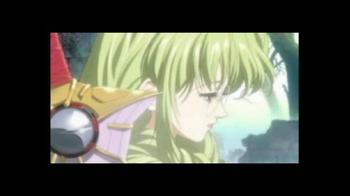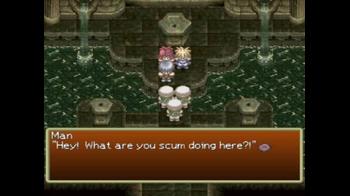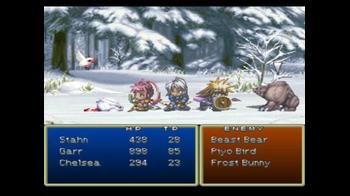
Tales of Destiny Retrospective Review
If there's one thing that I can say for sure, it's that the Tales series has constantly evolved over its lifespan. After Tales of Symphonia brought the series into the 3D realm (well, sort of), almost every entry to the series has been different, offering new gameplay mechanics and worlds to explore. It's one of the things that makes the series so endearing: Offering plenty of new things per entry, but still having the sense of familiarity. However, before that point, the series relied on tried and true mechanics, offering much the same in terms of world structure, combat, and aesthetics. Does that mean that these titles are not as great as later titles in the series? Not at all, they are good in their own right.
One title that falls firmly into the 'pre-Symphonia' age is Tales of Destiny, the second entry to the series and the first to grace the PlayStation. It was also the first of the series to make it to the U.S. (Europe would have to wait until Symphonia to get an official Tales release). It took much from Tales of Phantasia, including its graphical style and combat system. Despite that, Destiny's story and character were all its own, and very much helped the game become a favorite amongst Tales fans.
The story follows Stahn Aileron, an optimistic young man that wishes to see the world. After bring caught while stowing away on a ship (which is subsequently attacked by monsters), he finds a sentient sword named Dymlos, who names him a 'chosen one' to help save the planet. From there, Stahn's advanture truly begins, and eventually he meets more of these talking swords (named Swordians) and gets wrapped up in a plot involving the future of the world.
Tales of Destiny's story starts off in a very generic matter, but it eventually turns into a more unique and more enjoyable plot. This is mostly done by the characters themselves, which are well done and get a fair amount of growth throughout the 20-hour adventure. This focus on the characters also helps the narrative pull off some surprisingly emotional moments that, while not on the scale of what games today could do, can really pack a punch.
Unfortunately, the plot is hindered a bit by pacing issues. There are long stretches and multiple dungeons' worth of time with nary a scrap of dialogue, and other points where it feels as though the talking is going on a bit too long. It somewhat disrupts the flow of the game itself, but given Destiny's overall short length, it's an issue that doesn't show through often enough to sour the game experience.
As for the combat, it's all a 2D affair, with all movement in battle simply going from left to right. The combat itself is simplistic but satisfying enough: You have two types of physical attacks (Slash and Thrust, but you'll be using Slash most of the time), special physical skills, and if the character has a Swordian, magic skills. There's no real combo system to speak of, as you can't chain your own attacks too well and it's difficult to time attacks with your allies, but combos don't play much of a role in the game anyway.
Overall, Destiny's difficulty is on the easy side, though it's a bit hard to tell why. The enemy encounter rate is pretty high, but as long as you tackle mage units first the normal enemies are easy to handle even when underleveled. Most bosses are for the most part easy to handle, as well, but there are a few tough battles thrown in there. Also, it can be easy to get lost on the World Map or in a more puzzle-y dungeon, leading to more random encounters, and by extension, more experience and levels.
For the most part, Tales of Destiny's graphics have held up well since the PS1 era, due to some great spritework. However, the world map is a little hard on the eyes and it can be hard to tell where you can and can't walk sometimes, but the towns and battles are still great looking. The tiny amount of voice acting in the game is in Japanese, and regulated to battle grunts and spell casting.
There are a few other small gripes with the game, such as the mini-map not really being helpful, but most of these problems are only so if you're used to all the features modern RPGs have that weren't commonplace at the time. If you can get a hold of a copy of Tales of Destiny, grab it and play it; it may be a bit pricey on the second-hand market, but it's a great game and it sadly isn't on PSN. It may not be the absolute best in any department, but it's still an experience to be had.


